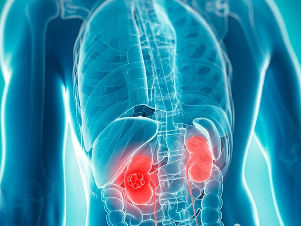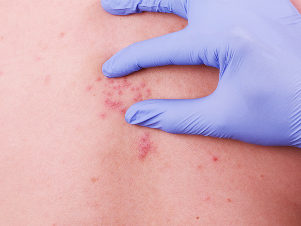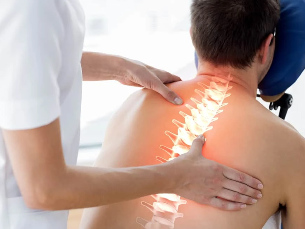Every day one or two of the patient is necessary. Regardless of age and sex, activity and body. What is pain? This is a protective reaction of the body is very necessary because if there is no pain we can't learn that in the organism there are violations that your health is threatened.

The mechanism of development of pains in the body like all reflexes from pain receptors, the impulse is first in the spinal cord, then processed and transmitted to the brain. In this way all the involved parts of the nervous system and the brain many pain centers at different levels. This suggests that the perception of pain is very important for the body.
But it does happen, what damage there is, and there is no pain. Most often, this occurs during tumor processes or when there is a violation of the pain receptors. When due to constant stimulation of receptors and nerve fibers, these fibers and centers in the brain are irritated, there is chronic pain. To treat them is much more difficult, because it affected not only the organs and tissue where there are receptors, but the pain transmitting cells of the nervous system — the neurons.
Pain in the back can be caused by a variety of reasons. Here we divide them according to localization (i.e. the location) of pain in different parts of the back and examine that might hurt at different levels, and that affects the entire spine. We do not relate to rare diseases: describe the most common causes of back pain encountered in practice.
1. Pain in the upper part of the back
- First of all, you need to eliminate the dangerous condition – heart disease. So when the pain in the upper part of the back, in the blades, especially the left, run an EKG (electrocardiography) to exclude acute coronary syndrome, myocardial infarction, if the person is in old age. Myocarditis and other inflammatory diseases of the heart, if the age of the young.
- If the ECG without pathology, think of dorsalgia in this part of the back is properly called torakalgiya (from the Latin word thorax – chest) i.e., violation of the spine or the muscles associated with the spine. Thoracalgia can be caused by osteochondrosis of the spine with damage to the thoracic. This is the most common cause. Increased pain occurs upon movement, especially when turning. If you look at the back, you can see how tense the muscles around the sore spot. These pains associated with any particular event – picked up a weight, lost, nervous, there was a big strain on the back. Often accompanied by pain in the sternum, aching, worse at night lying down. If the pain is fresh — appointed injections of painkillers, vitamins, muscle relaxants, everything takes place within 3 days, rarely weeks. If there is damage to the spine – herniated discs, damaged nerve roots, which branch off from the spine prolonged treatment. Here it is necessary to do x-rays and such patients are neurologists. Because it is formed chronic pain harder to cope. At this stage, connect the stronger drugs.
- It is impossible to exclude pathology of the shoulder joint arthritis or injuries. Sometimes give pain in the back.
- Of internal organs at the level of the upper back are light. To ache starts when the inflammation goes on the pleura – of the lungs that is rich in pain receptors. The pain is severe, worse when breathing to reduce pain, people lie on the affected side. If you have a fever and chest pain – doctor must suspect violations in the lungs. We take x-rays, which, most often, good see everything. Treatment is always in the hospital. Inflammation of the pleura – pleurisy can be from various reasons. Cause it can bacteria, viruses, Mycobacterium tuberculosis and other infections.
- Spontaneous pneumothorax — entry of air in the pleura. Often y stanichnyj young people with a hereditary defect of the connective tissue (connective tissue dysplasia or JSP). It happens when a strong cough during SARS, a sharp deep inhalation, injury.
2. Pain in the middle sections of the back, in the lumbar region and above
- Osteochondrosis of the spine at the level of the lumbar spine is manifested as lumbalgia is pain without irradiation in the leg, and lumbalgia – when the pain extends to the outer thigh. It is for the pinched nerve roots. Therefore, the doctor checks the so-called "radicular symptoms" or symptoms of tension. The patient lies back and raises one other leg. When the pinched nerve pain in the leg can be raised only at a slight angle.
- Around this level are located the kidneys. Then the doctor checks symptom pasternatskogo i.e. gently beat her back in the intended region of the kidneys, and if there is pain, it means the kidneys are sick. It is often a symptom of acute inflammation of the kidneys or kidney stones. Therefore, in the algorithm of examination of pain in the lumbar region of the back must include a urinalysis. When inflammation of the kidneys, acute pyelonephritis or exacerbation of chronic, sometimes high fever, pain in the lower back can be at the slightest touch. In General, the analysis of urine increased the number of leukocytes – inflammatory changes.
- The stones are not only in kidney but also in the gallbladder. Very often confused with pain from a spinal disorder and pain from inflammation of the gallbladder. The gallbladder is located right under the rib, and give pain in the right half of the back. But this body is so insidious that the pain in case of cholecystitis may be given in the right shoulder, lower back and even leg. The stone can sit not only in the gallbladder but also in the Bayou. Stone may not be, and to be inflammation of the gallbladder and ducts, caused by, for example, lamblia, opisthorchis and other parasites. Typically inflammation of the gall bladder detected on palpation of the abdomen and the definition of a special reflex symptoms of inflammation of the gallbladder. If there are signs of cholecystitis, a patient is sent to do an ultrasound of the abdomen and to the gastroenterologist. If cholelithiasis in the acute stage – this is the surgical treatment. Insidious is this disease that may not be the temperature of bitterness in the mouth, loose stool, but only pain. This occurs when the long, when it formed a chronic pain.
- Inflammation of the pancreas – pancreatitis. The pain often radiates to the back, only on the left. It happens when the inflammation covers the tail of the pancreas. If the inflammation is in the head, then give pain in lower back right in the middle. Here everything is clearer, acute pancreatitis just can't proceed without dyspeptic phenomena. Here, in addition to severe pain, most often it is "stabbing" abdominal pain can be nausea, vomiting. And of course the pain is always associated with the violation of the diet, is the intake of alcohol in combination with fatty foods. Acute processes – work for surgeons. Because the pancreas can start to digest itself, this is called necrotizing pancreatitis and require emergency intervention. If a chronic process is the observation of gastroenetrology. And with the exception of diet fat.
- Herpes Zoster – shingles. Occurs in the back area, often the waist. First pain, then cold sores in the form of small bubbles. Called one of the types of herpes infection. Cures usually a therapist and a neurologist. Pain can be very strong, burning. This virus spreads along the nerve. Sometimes from the beginning of the pain until the rash a week and the diagnosis is difficult to establish.


3. Low back pain
- The most common reason — manifestations of osteochondrosis. Violation or degenerative changes in the vertebrae at the level of the lumbosacral joint, the pain experienced in the coccyx, up the spinal column.
- Gynaecological causes can give pain in the back (all depends on anatomical position) inflammatory diseases of female organs.
- Urolithiasis, if the stone passes through the ureter, often occurs at the lateral lower abdomen, but it could be from the back.
- Pathology of the hip joint (as in our case, which is given at the beginning of the article), arthritis, arthrosis, or even a hip fracture can give back pain.
- Diseases of the rectum – hemorrhoids, tumors benign or malignant (if malignant tumor, they give pain, not only in themselves, but can be a pain from the metastases in the spine, liver, lungs).
- Finally, diseases of the prostate — this can be benign dysplasia of the prostate can be prostate cancer. These diseases develop in adulthood, therefore, often occur for a long time, even without visible symptoms, but the weakening of the body can metastasize to the lumbar spine, in the lungs, local lymph nodes.
4. Some diseases affect the entire spine or its departments
- Low back pain – most common is degenerative changes in the spine which affects the spine. There is polysegmental low back pain. Its symptoms give symptoms in all parts of the spine, so diagnosis can be particular difficulties very often this happens due to osteoporosis.
- Osteoporosis – a decrease in the calcium content in the bones, more pronounced with age. Men and women can be from different reasons but is the same. In women after menopause is linked to low estrogen levels that are of child-bearing age regulate the metabolism of calcium, in men, most often due to lesions of the gastrointestinal tract and malabsorption of calcium. In osteoporosis the bones are brittle, thin. This also applies to the spine. There are hairline fractures at the slightest injury in advanced stages.
- Multiple myeloma belongs to the group of leukemias or tumors in the blood when a tumor develops at the level of the bone marrow. Increases the number of hematopoietic cells of which grow white cells, the pressure of the mass causes pain in the bones. When the disease affects the flat bones, most often the belly, but can be a pain in the spine. Now the increased number of cases of leukemia. It is diagnosed by the presence in the urine protein Ben Jones, of the modified protein, which produce tumor cells.
- Ankylosing spondylitis and other autoimmune diseases — when inflammation of the vertebrae are autoimmune in nature, i.e. when the body produces antibodies against its own cells. There has been an increase of autoimmune diseases.
- Infectious diseases of the spine – tuberculosis (may be combined with HIV infection), syphilis, osteomyelitis is very rare, but the doctor should consider and know about them. Tuberculous osteomyelitis is difficult to diagnose, often the diagnosis finally never exhibited, but the treatment should be serious. Tuberculosis is an insidious disease that any weakening of the immune system, it can enter the body and manifest in unexpected symptoms. For the last year I have seen two such patients.
5. Persistent back pain can indicate a serious disease
When the following symptoms the doctor suspects cancer, and aims at an in-depth examination:
- back pain bad are in the treatment of pain,
- the decrease in body mass
- low-grade fever (37-37,5 degrees which for a long time does not pass),
- anemia, decreased hemoglobin, externally it looks like the paleness or yellowness of the skin, bluish color of the lips, "circles" under the eyes,
- increase of erythrocyte sedimentation rate (ESR) in the General analysis of blood,
- the bleeding tendency.
The algorithm of examination for pain in the back

1. First of all you need to pass routine tests – General blood analysis, General urine analysis. This will give us an idea of the condition of the body, inflammatory processes in the condition of the urinary system. If we see a change in the urine, then immediately suspect that the pain is caused by kidney disease.
2. Biokhimicheskii blood, count liver function tests (ALT, AST, bilirubin, alkaline phosphatase), CRP (C-reactive protein), rheumatoid factor, indicators of inflammatory activity, the amount of protein, the ratio of different types of blood proteins – albumins and globulins and other indicators, if the doctor suspects some kind of disease.
3. Tumor markers – if you suspect a neoplastic process.
4. Tests for infectious diseases: HIV, viral hepatitis, tubercules, syphilis.
5. X-ray of the spine shows changes in the spinal column, the presence of hernias of vertebral metastasis of tumors, of inflammation.
6. CT scan of the spine and internal organs – a very important survey, it is more than an x-ray visible changes in the tissues.
7. MRI is more expensive and informative method used to confirm the CT scan results. It is possible to conduct a combined survey that capture the internal organs and the spine. This survey allows us to identify the exact reasons of damage of internal organs.
8. If the doctor thinks about some rare disease, it assigns a special survey (on autoimmune disease, rare infections, more in-depth studies to determine the state of the body).
The treatment of back pain, of course, are prescribed depending upon the cause. But we begin always with painkillers – non-steroidal anti-inflammatory drugs or antispasmodics.
Despite the variety of causes of back pain, our medicine is advanced enough to establish an accurate diagnosis and begin treatment. Most importantly – do not start the disease and consult a doctor if the pain doesn't go away within three days, not to mention long intense pains.
Be healthy!































